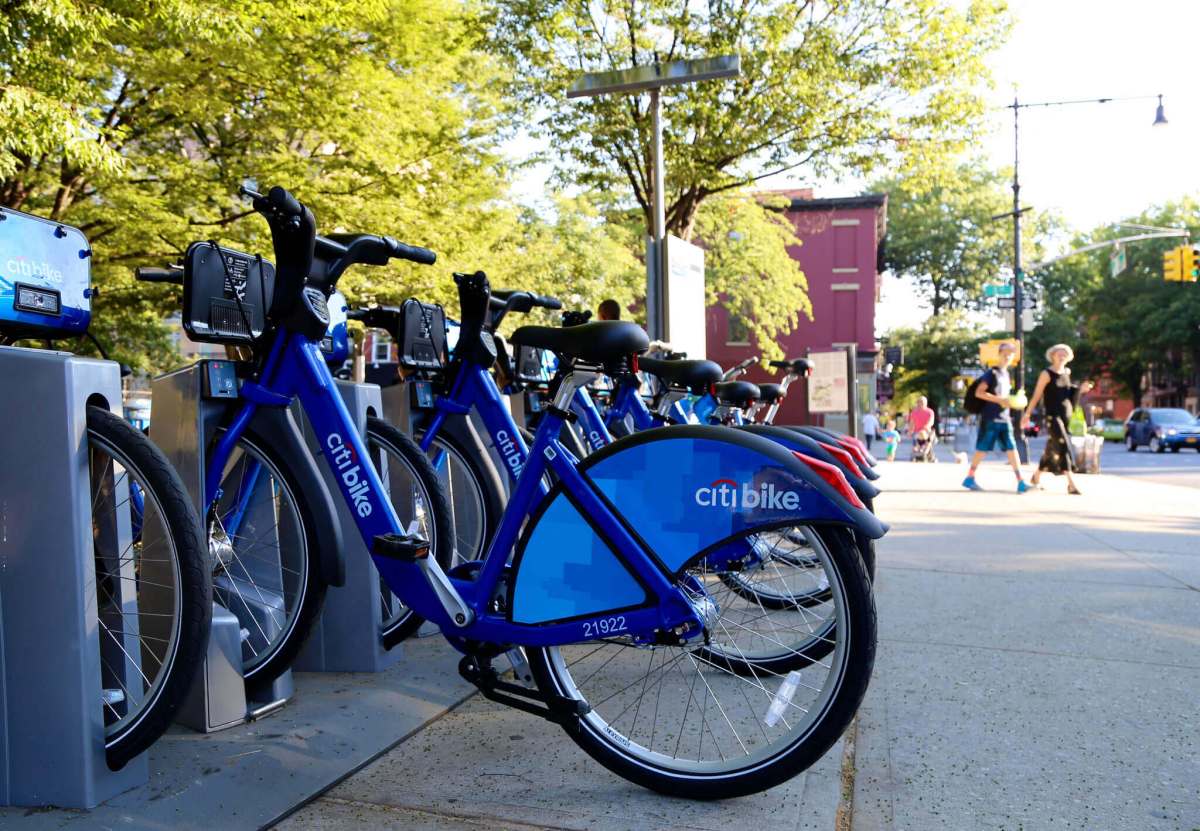Lyft is considering selling off Citi Bike amid mounting financial woes at the rideshare company, according to a Monday report in The Wall Street Journal.
The company is heavily invested in bike share systems, boasting a network of 68,000 bikes in eight cities across the country with over 1.4 million rides recorded just last week. Internationally, it runs bike share programs in 53 cities across 15 countries.
Citi Bike, which Lyft purchased in 2018, is its flagship, with an average of over 114,000 rides recorded daily in June across New York City.
But the company has faced rough financial headwinds in recent years. Its stock price has tumbled from nearly $80 a share in 2019 to $11.56 on July 24, though it’s recovered somewhat from a low near $8 in May. Its co-founders stepped down from their roles atop the company in March and were replaced as CEO by David Risher, who in May laid off more than 1,000 employees, representing a quarter of Lyft’s workforce.
Now, The Wall Street Journal reports, Risher is mulling whether to sell off the company’s bike share fleet, including Citi Bike, or form new corporate partnerships to infuse much-needed capital into the systems.

In a statement Monday, the company confirmed it has received considerable interest from prospective buyers for its bike fleet, and that it’s entertaining “credible proposals” for new corporate partnerships, but did not specifically comment on how seriously it is considering bids for purchase.
“Lyft has received strong inbound interest in our bikes and scooters business, which is no surprise given that bikes, and particularly e-bikes, are growing more popular as ridership continues to break records,” the company wrote in the statement. “As a leading bike share provider, supplying solutions to over 53 markets across 15 countries, it’s only logical for Lyft to listen to credible proposals and explore strategic partners and options in several forms to serve more riders in more cities. We expect this part of the business to continue to be a meaningful part of Lyft’s offering now and into the future.”
The news comes even as outwardly, Citi Bike appears to be on the up-and-up. Last week, the system recorded a record daily ridership of over 143,000 trips on July 21. Citi Bike is expanding its portfolio of bike share docks in the outer boroughs. It’s adding thousands of units to its highly in-demand fleet of e-bikes and hiring more mechanics to maintain them. In May, Lyft renewed its lucrative sponsorship deal with Citibank through 2034.
Launched in 2013 with 6,000 bikes, the bike share program just celebrated its 10th birthday, having become an indelible part of how New Yorkers move and the broader Big Apple urban fabric. It now boasts nearly 30,000 bikes, including about 5,000 e-bikes, at stations in every borough except Staten Island and across the Hudson in Jersey City and Hoboken, although vast swaths of the outer boroughs remain unserved.
While it started its life in tonier parts of Manhattan and Brooklyn, Citi Bikes are now present in neighborhoods across racial and socioeconomic lines; the company says a third of its bike share stations nationwide are in low-income neighborhoods. Citi Bike offers a deeply discounted $5-per-month membership to public housing residents and SNAP recipients.

Citi Bike has never received public subsidy from taxpayers, instead relying on funding from sponsorships, ads, and subscription and rider fees. While running for mayor in 2021, Eric Adams joined fellow candidates in supporting the commitment of public money to Citi Bike, though he hasn’t followed through on it since arriving at City Hall.
A spokesperson for the city’s Department of Transportation, which regulates the bike share program, would not say whether the agency is considering buying Citi Bike outright, though they said the city will maintain its regulatory role should it change ownership.
“With Citi Bike, New York City and Lyft have built the largest and most successful bike share system in the U.S., and we have reached all-time ridership highs while continuing to expand across the city under the Adams administration,” said the spokesperson, Mona Bruno. “We have been and remain focused on ensuring New Yorkers continue to have access to affordable, convenient bike share.”
The bike share system was originally operated by Motivate, which was purchased by Lyft in 2018 for a reported $250 million.
For years, Lyft and its main competitor in the rideshare sphere, Uber, never turned a profit despite market capitalizations worth billions of dollars. But Uber has pulled ahead in recent years amid a strategic pivot to food delivery, and claims it expects to post a profit this year. Lyft is a different story, and the expense of maintaining its bike fleet is a major reason why, WSJ reported.
The system’s e-bikes, including the brand-new silver flyers, are in high demand and getting considerably more use than their pedal-driven brethren, Curbed reported Monday. That means they need to be taken out of service for charging more consistently, and that they’re breaking down more often and losing time on their expected lifespans.
A spokesperson for Lyft declined to discuss financials of the company’s bike share programs, saying Lyft reports out financials only for the whole firm. The company will announce its second-quarter earnings next month.
This story was updated with comment from the Department of Transportation.




































